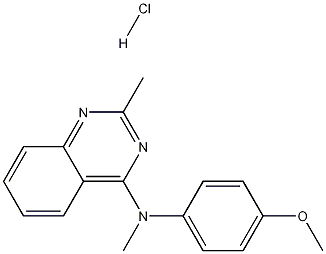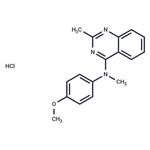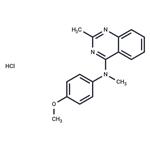MPC 6827 Hydrochloride is a microtubule destabilizing agent which may be used in the treatment of patients with cancer.
mpc-6827 (azixa) is a small-molecule microtubule-destabilizing agent that binds to the same (or nearby) sites on β-tubulin as colchicine.[1]tubulin is a heterodimer consisting of an αand βmonomer, it can be covalently labeled with [3h] colchicine by near uv irradiation. most of the label appears in β tubulin. colchicine binds to tubulin with a stoichiometry of one and inhibits microtubule assembly substoichiometrically. colchicine binding to tubulin exhibits pseudoirreversible kinetics; it displays a fast step followed by a slow step involving conformational changes of both ligand and tubulin. the tubulin, in turn, promotes fluorescence characteristic of the tropolone moiety of colchicine. [2]mpc-6827 is a small-molecule microtubule-destabilizing agent that causes mitotic arrest and cell death. mpc-6827 interfere with microtubule dynamics, leading to arrest of dividing cells in the g2-m phase of the cell cycle, which eventually results in apoptotic cell death.[1]
mpc-6827 significantly inhibits the growth of various subcutaneously implanted tumor lines. mpc-6827 has also been shown to be a vascular-disrupting agent (vda) in a human ovarian carcinoma xenograft model. it also has shown synergism with carboplatin in a mouse xenograft model. furthermore, mpc-6827 has been shown to inhibit the growth of human glioblastoma tumor cell line (d-54) implanted intracranially in athymic nude mice. [1]
[1] tsimberidou am1, akerley w, schabel mc, etal. , phase i


